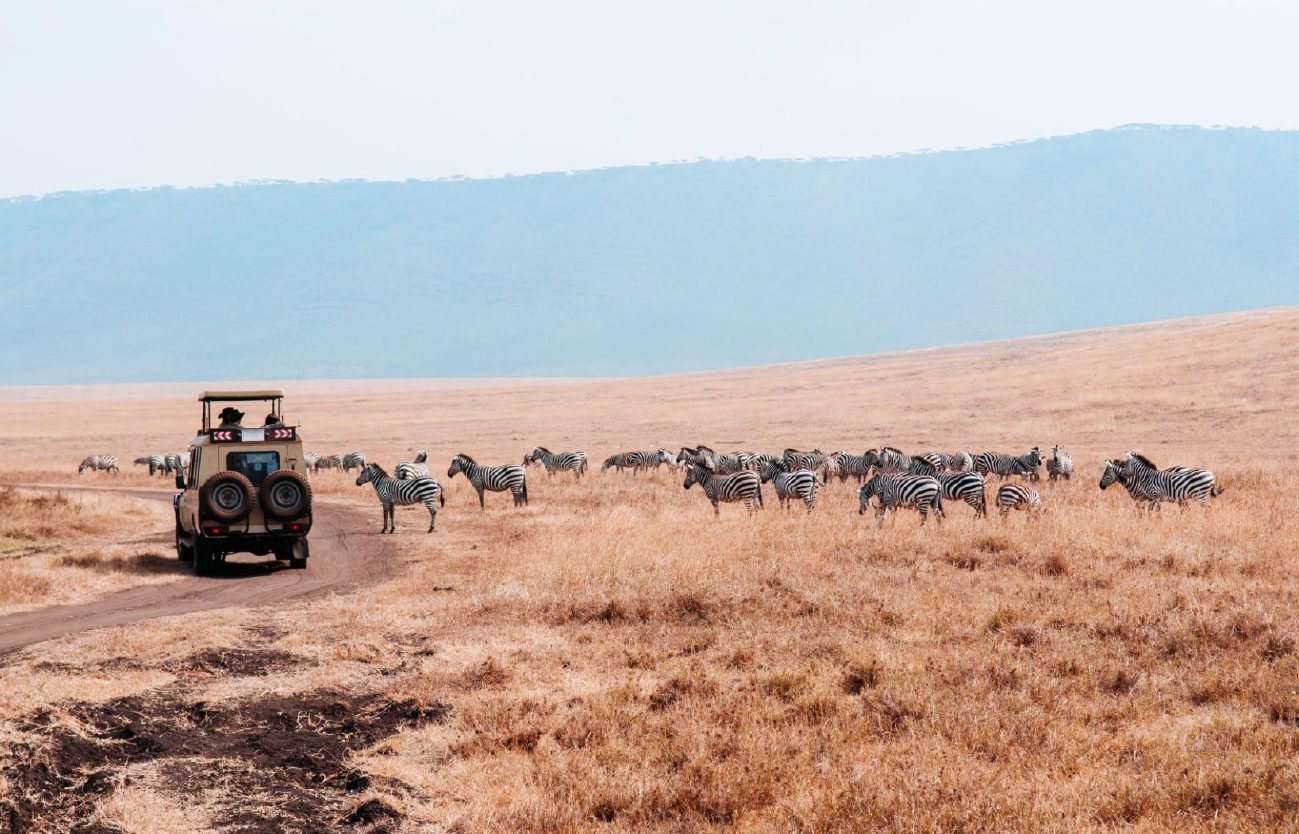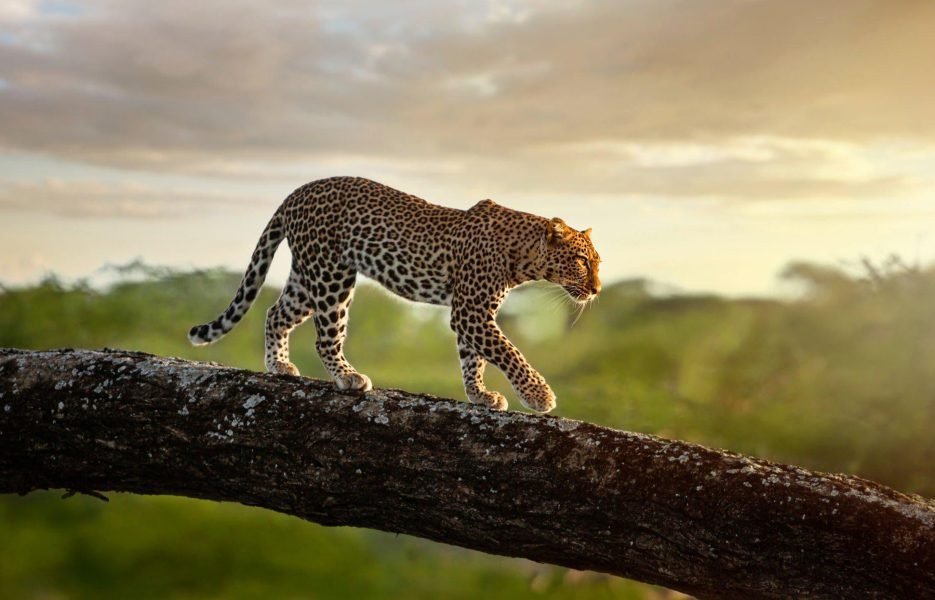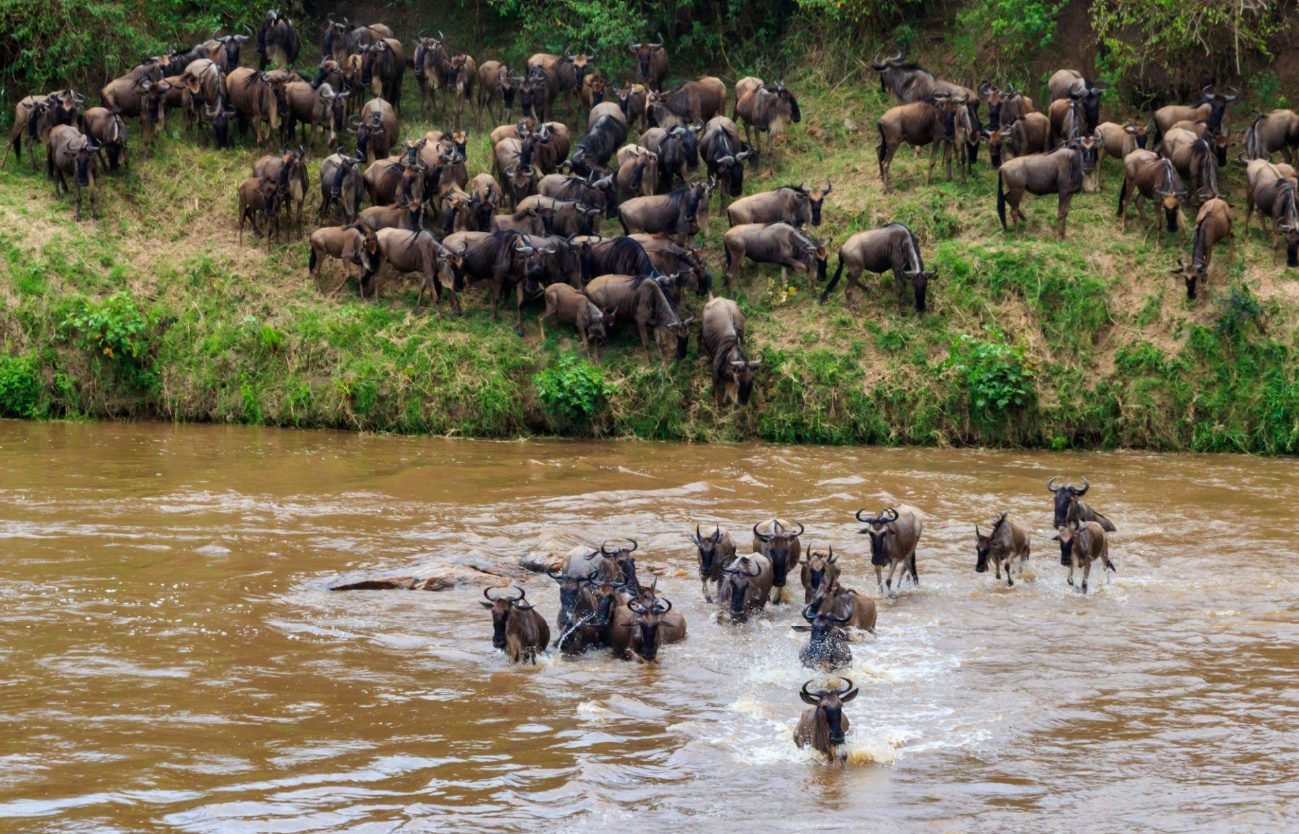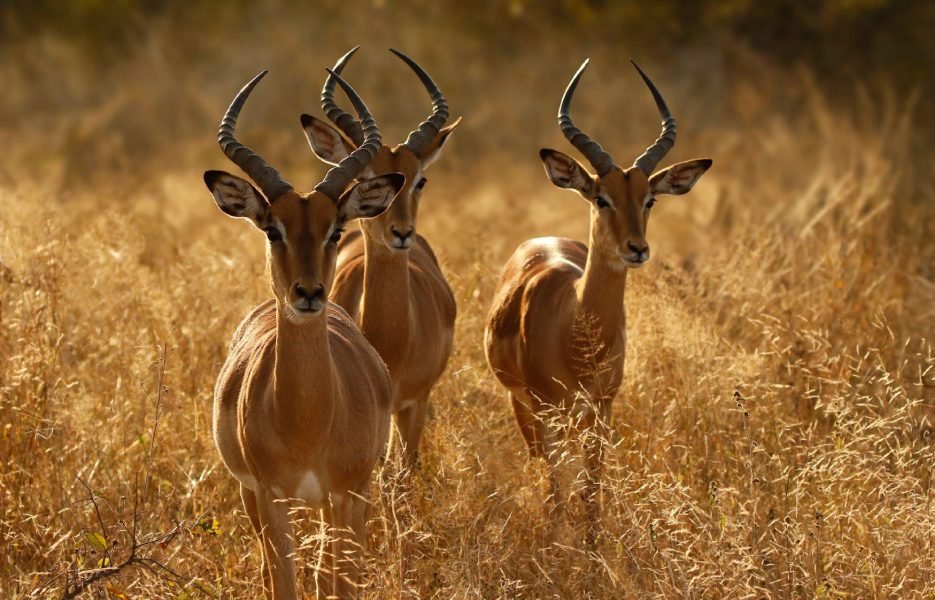Serengeti
Serengeti National Park is Africa’s most famous park due to the largest concentration of game on the continent and the migration of millions of wildebeest. The most impressive nature documentaries were shot in this beautiful park. ‘Serengeti’ comes from the Maasai language meaning ‘endless plains’ and this rightly describes it. With almost 15.000 km2 (6,000 sq miles), Serengeti National Park is the second largest park in Tanzania.
Witness the Great Migration in Serengeti National Park
The annual wildebeest migration of more than a million wildebeest is probably Serengeti’s main attraction. It is a truly impressive sight to see all those mammals thunder across the Serengeti plains, crossing rivers, in search of water and fresh grass. Mega herds on the move stretch up to 40 km long, covering a distance of some 1000 kilometres. A dangerous journey for the wildebeest, zebras and gazelles who need to outsmart their predators. Especially the Mara and Grumeti River where giant crocodiles and fast-flowing water awaits. The Great Migration is listed as one of the Seven Natural Wonders of the World and is for lots of visitors the highlight of their journey. It is definitely one of the world’s largest wildlife spectacles.
You can witness the wildebeest migration any time of the year since the animals migrate in a circle between the Serengeti and Maasai Mara (Kenya). The exact timing of the Serengeti wildebeest migration depends upon the rainfall patterns each year. Thanks to our experienced Tanzania Specialist guides, we are able to make a fairly accurate prediction.
If you like to know where the wildebeest migration is at different times of the year, check our page about the wild beast migration.
Wildlife in Serengeti National Park
Serengeti National Park offers so much more beauty than just the wildebeest migration. You can see a variety of landscapes and wildlife unlike anywhere else in Africa. The endless plains are home to more than 4,000 lions, 1,000 leopards, 225 cheetahs and 3,500 hyenas. It’s no surprise there are so many predators due to the abundance of wildebeest, zebras, gazelles and buffaloes. The Serengeti is also one of the best places to see the Big Five – rhino, buffalo, elephant, lion and leopard. Almost all the famous African animals are present in this majestic park. This includes rare animal species like the pangolin, East African Oryx, rhino and wild dog.
The captivating landscapes of the Serengeti National Park vary from savannahs with acacia trees and vast grasslands to rising mountains, lakes and swamps. Each area is unique and has its own atmosphere. Because of its natural beauty and variety of plants and animals, the park is listed as UNESCO World Heritage Site. This place definitely touches your soul.
Do you like to incorporate Serengeti National Park into your itinerary? Check our Tanzania safaris for inspiration or contact us for personal advice.





Most common animals in Serengeti National Park
- Lions
- Cheetahs
- Leopards
- Wildebeest (more than 1 million)
- Zebras (more than 200.000)
- Gazelles (more than 300.000)
- Rhinos
- Elephants
- Crocodiles
- Hippos
- Grant Gazelle
- Thomson Gazelle
Serengeti national park facts
- Endless plains with typical Lion King trees
- Calving season in February, when 8.000 wildebeest calves are born each day
- Simba Kopjes are granite outcroppings where lions like to rest
- Seronera River is a valuable water source and attracts lots of wildlife.
- Retina Hippo Pool, home to about 200 hippos
- Grumeti River and Mara River, famous for the wildebeest river crossings.
- Lobo Valley has great views of elephants and big cats.
Travel time to Serengeti National Park
- Arusha to Serengeti: 5 hours’ drive.
- Ngorongoro to Serengeti: 2 hours drive.
- Lake Manyara to Serengeti: 3,5 hours’ drive.
- Tarangire to Serengeti: 4 hours drive.
- Flight Arusha to Serengeti: 1 hour (about €238,- per person, one way).
Best time to see the wildebeest migration
The exact timing of the Serengeti wildebeest migration depends upon the rainfall patterns each year. Thanks to our experienced Tanzania Specialist guides we are able to make a fairly accurate prediction. Read When and where is the wildebeest migration?